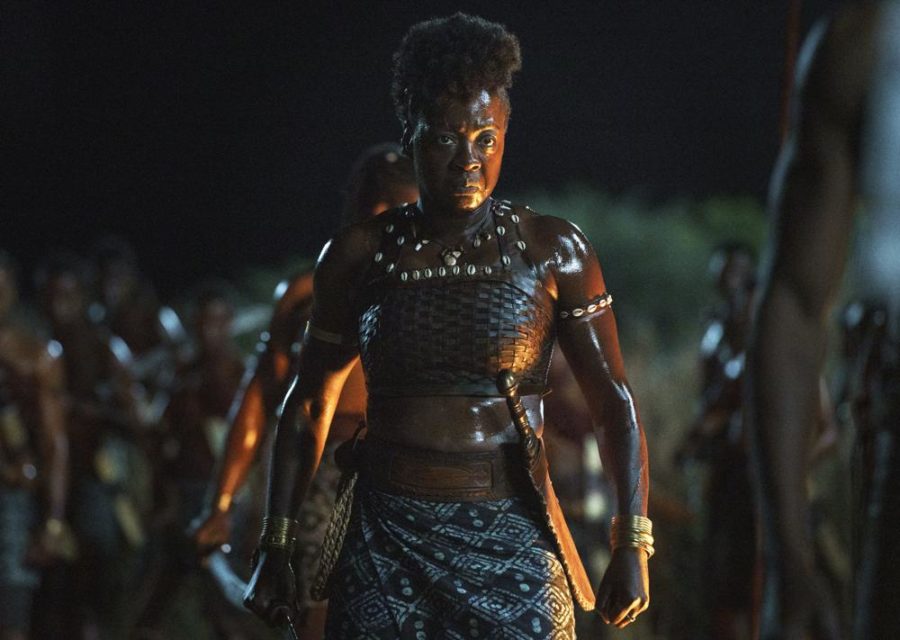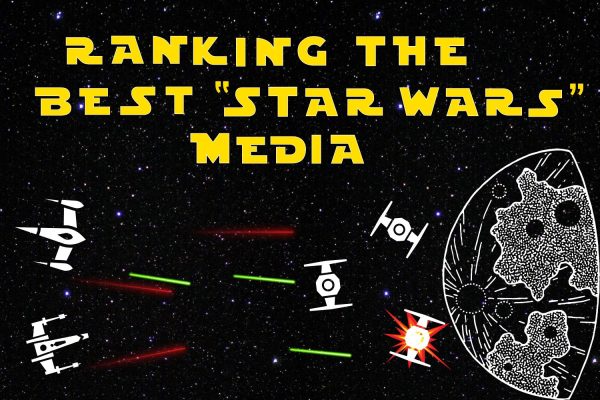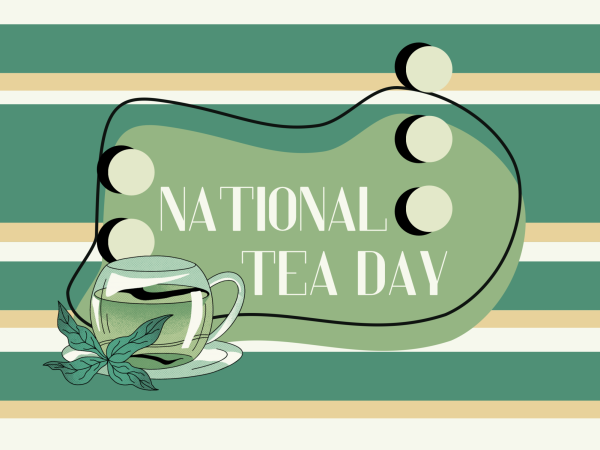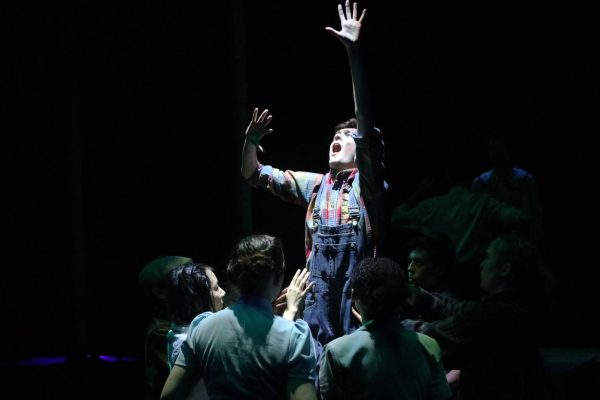“The Woman King:” the history you should hear
Only a few mainstream movies cover a fictional aspect of African heritage as a main concept, let alone real moments in history. Most of these are focused on men, which leaves a demographic completely uncovered. That’s why the movie “The Woman King” stands out from the rest.
Based on true events, “The Woman King” was released on Sept. 16 and follows General Nanisca (Viola Davis) as she leads the all-women West African warrior group, the Agojie, in battle to protect the Kingdom of Dahomey from the Oyo, who sold the Agojie as slaves to the Europeans. During this time, new Agojie recruits were trained to be prepared for the gruesome battles ahead. Among those recruits was Nawi (Thuso Mbedu), a young girl who continuously challenged Nanisca and her ways. From this, the elders of the Agojie learned valuable lessons and found new ways to beat their enemies.
To know that this movie is based on real life events and people brings joy to my heart. Rarely do we hear about the African warriors in history, let alone in movies. Normally, when you see any form of African culture in a movie, it portrays an African character as the helpless victim, or merely a background character. So it was a surprise and relief to see a story that showed the exact opposite.
The movie touched on some facts that not many others talk about, for one, Africans selling other Africans as slaves to the Europeans in order to maintain power and fortune. This caused the main conflict in the movie, and makes viewers realize it is a key part in the culture for both sides of the war. However, you can still tell the difference in each side, as one has a clear change of heart.
Given that this movie is about a group of warriors who are women, it, of course, has a slight level of misogyny to it. However, there are two sides to this coin. For one, just being women in general, they would be perceived as weak. But since they are black women and are warriors, it’s expected of them to be headstrong and determined, which is why citizens looked up to them. However, this caused some problems as a part of the conflict presented in the movie deals with keeping up with appearances. This is something I myself have struggled with because, even in modern day America, this stigma still thrives. Black women are expected to live up to either two stereotypes, loud and disruptional, or classy and booksmart. But both of these stereotypes hold one common factor: black women are fearless and hardly express negative emotions, like sadness. Which is a key characteristic of the Agojie.
With that, we also have to talk about relationships between the Africans and the Europeans, as well as the romantic relationships in the movie. A key rule of the Agojie is that they cannot marry, which doesn’t raise an issue with any of the members besides Nawi. She finds herself ‘flirting’ with a male warrior and catching feelings for a half-Dahomey half-European man named Malik (Jordan Bolger) who travels to Dahomey with his childhood friend Santo Ferreira (Hero Fiennes Tiffin), a slave trader, in order to reconnect with his mother’s homeland. Due to this, she runs into slight trouble with her superiors, but in the end, all seems to be well.
A reason I love this movie is because it didn’t run with the typical white-savior act. Nawi wasn’t swept off her feet by Malik, nor did she risk it all to be with him. There were clear signs both had feelings for each other; however, they both respected the fact that they had two different lives and stories to live. I was fearful during the movie that they would end up together only for the mere fact that he could ‘save her’ from the war, but I was happily surprised.
Aside from the love story aspect of the movie, “The Woman King” provided a great deal of heavy-hitting scenes. The growth of relationships between the characters, along with the personal growth that they each have, makes the story feel so much more real. I found myself engrossed in the movie, not just for the action, but for the personal journeys of each of the characters.
“The Woman King” is a must-watch movie, and it’s hard to express how wonderful it is without spoiling every last detail. There are certain scenes that’ll make you want to jump for joy, and others that’ll have you secretly crying in the theater.
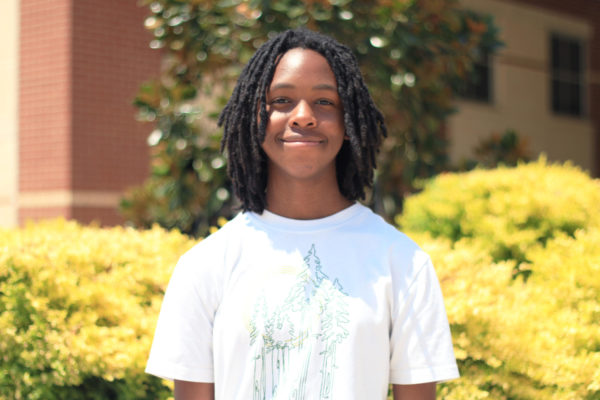
Senior Nyla Smith is the news editor and this is her third year on staff. In her free time, she enjoys knitting and watching movies.



